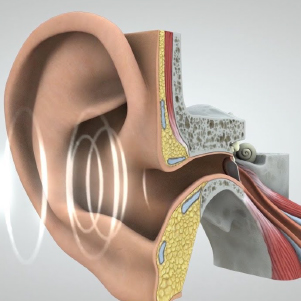peacegirl
Veteran Member
- Joined
- Sep 12, 2024
- Messages
- 1,763
- Gender
- Female
- Basic Beliefs
- I believe in determinism which is the basis of my worldview
If you want to get technical, that's fine. It doesn't change the fact that light does not transmit images through space/time.The difference is that the sound is being carried to our eardrums, whereas there is no picture traveling from an object on the waves of light to impinge on our optic nerve.
Sorry, no, this is not good enough. “Sound” is NOT carried to eardrums, AIR PRESSURE WAVES are.
<iframe width="560" height="315" src="" title="YouTube video player" frameborder="0" allow="accelerometer; autoplay; clipboard-write; encrypted-media; gyroscope; picture-in-picture" allowfullscreen></iframe><p>This animated video illustrates how sounds travel from the ear to the brain, where they are interpreted and understood. Also available: <a href="https://www.nidcd.nih.gov/health/how-do-we-hear">How Do We Hear?</a>, a step-by-step explanation.</p>

Journey of Sound to the Brain
Learn how sounds make their way from the source to your brain.
Light is not a picture, but that's basically what you're saying when you describe light as bouncing off of objects and bringing that information through space/time to the eye.A “picture” is NOT being carried to our eyes, LIGHT is arriving at our eyes. LIGHT IS NOT A PICTURE,
No they aren't, but they are carrying the air pressure that creates sound. Light doesn't do that.AND AIR PRESSURE WAVES ARE NOT SOUND.
Sound waves carry air pressure to the ear1234. Vibrating objects create pressure waves in the air, which reach the ear and are transduced into nerve impulses by the ear2. The eardrum vibrates, moving the ossicles and transmitting sound further into the ear4.
Nothing changes in your post other than the last blank where "impulses from the retina transmute into signals that are believed to be interpreted by the visual cortex as virtual images rather than seeing the real thing."Peacegirl, please fill in the missing blanks in this post.
Last edited:

